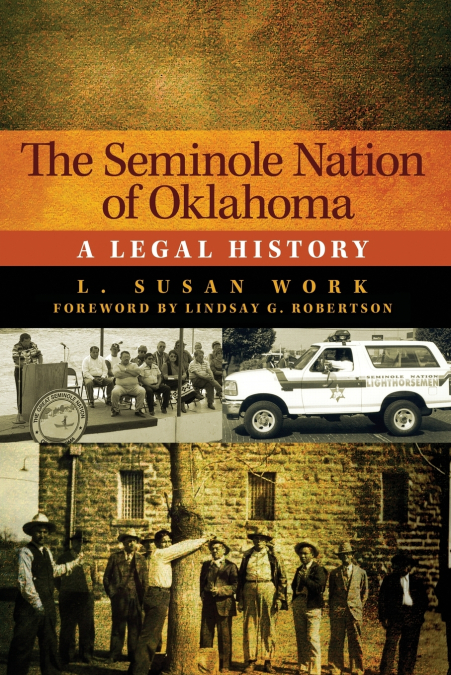
L.S. Work / Lindsay G. Robertson
 Librería Perelló (Valencia)
Librería Perelló (Valencia)
 Librería Aciertas (Toledo)
Librería Aciertas (Toledo)
 El AlmaZen del Alquimista (Sevilla)
El AlmaZen del Alquimista (Sevilla)
 Librería Elías (Asturias)
Librería Elías (Asturias)
 Librería Kolima (Madrid)
Librería Kolima (Madrid)
 Donde los libros
Donde los libros
 Librería Proteo (Málaga)
Librería Proteo (Málaga)
When it adopted a new constitution in 1969, the Seminole Nation was the first of the Five Tribes in Oklahoma to formally reorganize its government. In the face of an American legal system that sought either to destroy its nationhood or to impede its self-government, the Seminole Nation tenaciously retained its internal autonomy, cultural vitality, and economic subsistence. Here, L. Susan Work draws on her experience as a tribal attorney to present the first legal history of the twentieth-century Seminole Nation.Work traces the Seminoles’ story from their removal to Indian Territory from Florida in the late nineteenth century to the new challenges of the twenty-first century. She also places the history of the Seminole Nation within the context of general Indian law and policy, thereby revealing common threads in the legal struggles and achievements of the Five Tribes, including their evolving relationships with both federal and state governments.As Work amply demonstrates, the history of the Seminole Nation is one of survival and rebirth. It is a dramatic story of an Indian nation overcoming formidable obstacles to move forward into the twenty-first century as a thriving sovereign nation.